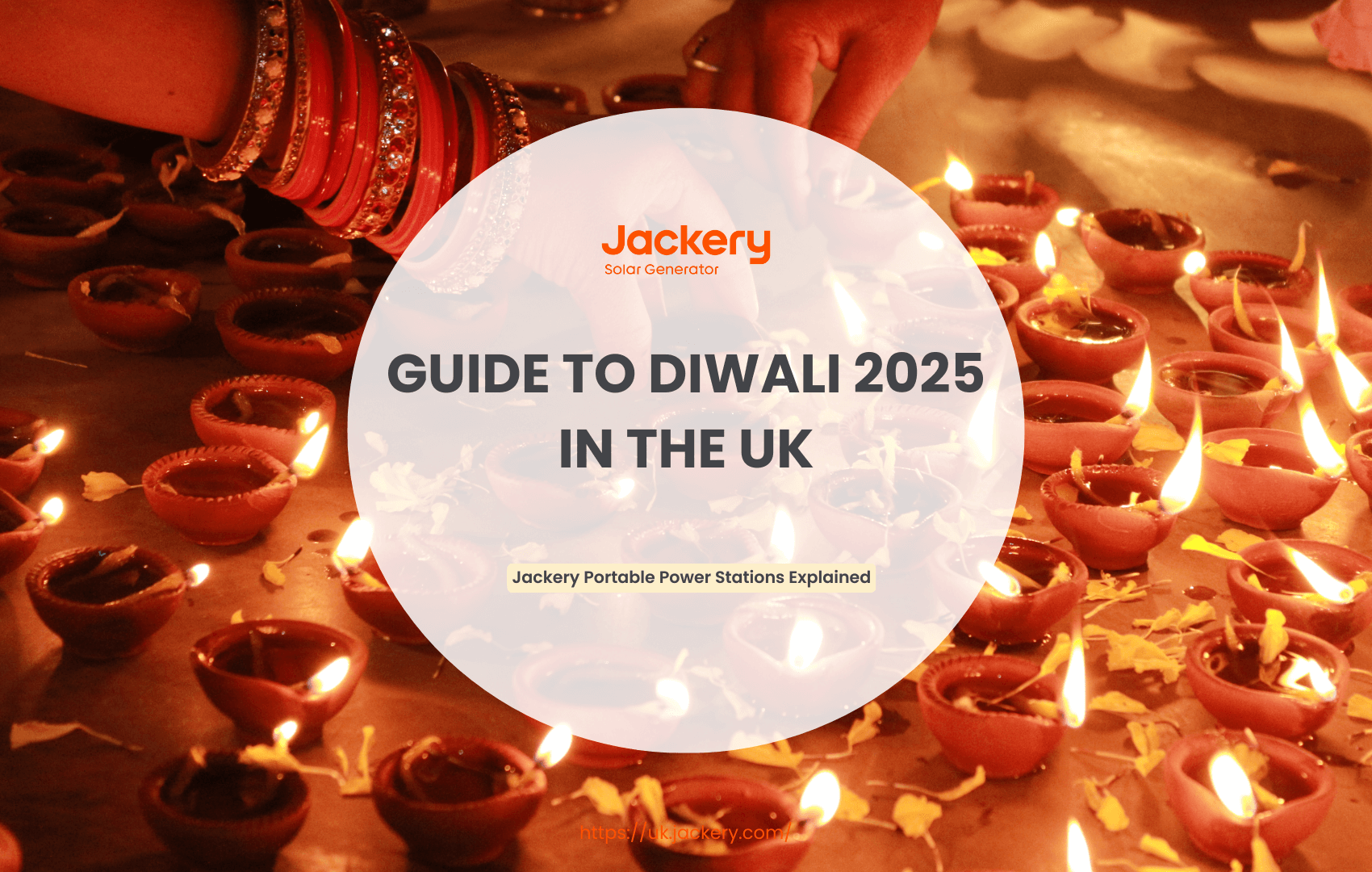Diwali is the Hindu festival of lights, which is observed in varied ways by other Indian religions such as Jainism and Sikhism. It is celebrated among family and friends. The Diwali celebration includes vivid colours, dazzling fireworks, and wonderful cuisine.
Diwali is celebrated between October and November each year, with the dates fluctuating. The greatest celebrations take place on the third day of the month, which is the darkest of the month. If you want to spend a truly wonderful Diwali 2025 holiday with family and friends, here's a comprehensive reference about Diwali's origins, dates, rituals, and preparations.
|
Key Takeaways: |
|
What Is Diwali?
Diwali (also known as Divali or Deepavali) is one of India's largest and most celebrated celebrations. The name derives from the Sanskrit word "Deepavali," which means a row of lights. Diwali represents a fresh beginning, the triumph of light over darkness, and good over evil. It symbolises the triumph of justice and knowledge over ignorance.
What Are the Origins of Diwali?
Diwali is associated with a variety of religious events, deities, and characters, culminating in a fusion of many religious and folkloric traditions. Varied areas and religious groupings have varied explanations of Diwali's origin. The primary and most frequently accepted source is the Indian epic Ramayana. The return of Prince Rama is the most widely celebrated Diwali mythology.
After 14 years in exile, the brave Prince Rama conquered the ten-headed demon king Ravana and returned to the royal city of Ayodhya with his wife Sita and brother Lakshmana. To greet their return, Ayodhya residents ignited thousands of oil lamps, which illuminated the night.
Thus, Diwali commemorates the triumph of good over evil and the removal of darkness with light. In addition, additional regional traditions link Diwali to Vishnu, Krishna, Durga, Shiva, Kali, Hanuman, Kubera, Yama, Yami, and Dhanvantari, among others.
Is Diwali Celebrated Only in India?
No, Diwali is not celebrated only in India; it is widespread. It is celebrated with great fanfare throughout India and in many Indian-American communities around the world, such as Nepal, Fiji, Singapore, Mauritius, and Trinidad and Tobago. Some countries even designate it as a public holiday. In total, approximately one billion Hindus worldwide celebrate this festival, along with followers of many other religions.
When Is Diwali in 2025?
Diwali is celebrated each autumn during the Hindu month of Kartik. Kartik begins approximately in mid-October and ends in mid-November. Therefore, Diwali typically falls between October and November and lasts for five days, with dates determined by the Hindu lunar calendar (the Indian calendar is based on the moon).
Since this festival follows the lunar calendar, not the modern Gregorian calendar, the exact date of Diwali varies from year to year. The first day of Diwali falls on the darkest day of the lunar month, the day of the new moon. The third day is the main festival.
In 2025, the core celebration of Diwali will be October 20, as the government has designated it as a public holiday. All festivities and fireworks will take place on the evening of the 20th and continue until Tuesday, October 21st. However, in some regions, celebrations and public holidays extend over several days (Saturday, October 18th - Thursday, October 23rd), creating a festive week. Although Diwali is not a public holiday in the UK, many Diwali-goers take time off to celebrate with family and friends.
Who Celebrates Diwali?
Diwali is not only a traditional festival for Hindus and Indians, but has also become a global, cross-cultural celebration, embraced and participated in by people from all nations, ethnicities, and communities. Diwali is celebrated by a wide range of people, but can be broadly categorised as follows:

Hinduism
For Hindus, Diwali marks the end of a 14-year war and the victorious return of the exiled Ayodhya prince Rama. Hundreds of millions of Hindus worldwide celebrate this festival by lighting lamps, offering blessings, and worshipping the goddess Lakshmi, celebrating light and prosperity. Diwali also marks the beginning of the new year, and many Hindus use the day for thorough cleaning, wearing new clothes, and performing blessing rituals.
Other Religions
Several other religions also celebrate this festival, based on their own doctrines and histories:
Sikhs: For Sikhs, the festival symbolises freedom, marking the release of Guru Har Gobind from the captivity of Emperor Jahangir; the guru refused to release him until all 52 princes imprisoned with him were freed.
Jains: For Jains, Diwali is a different kind of festival. It commemorates the attainment of Nirvana, also known as perfect knowledge and enlightenment, by the last great spiritual leader, Mahavira.
Buddhists: Some Buddhists, particularly in Nepal, also celebrate Diwali, associating it with Emperor Ashoka, who converted to Buddhism, and viewing it as a festival of light.
Cultural Enthusiasts and Celebrants
Diwali has become a national holiday in India, Singapore, and several other South Asian countries, allowing those who do not practise the three major religions to join in the celebrations. Non-Indian citizens in multicultural nations such as the United Kingdom and Canada celebrate Diwali by watching light displays, eating sweets, and sharing blessings, exhibiting cultural tolerance and exchange.
What Are the Highlights of Diwali?
Diwali is one of the world's largest and most culturally immersing events, with pyrotechnics, colourful lantern displays, and delectable food. Together, these activities foster a sense of joy, hope, and warmth.

Highlight 1: Massive Fireworks Displays
The fireworks displays on Diwali night are truly spectacular. The festive atmosphere reaches a climax when the night sky is illuminated, making it one of the most captivating moments of the festival. This is more than just entertainment; it serves to dispel evil and darkness, welcoming good fortune and joy with light and sound.
Highlight 2: Lighting Candles or Other Lights
During Diwali, people light candles, clay lamps, and oil lamps in their homes, on the streets, at places of worship, and even float them in lakes and rivers. Nowadays, some people use safer, longer-lasting colored string lights or even electronic lights to decorate their homes. This is to welcome Lakshmi, who is said to visit the brightest and cleanest homes.
Highlight 3: Paintings
Rangoli is a popular Diwali tradition—beautiful designs created with colored powders and flower petals. People draw rangoli on the floor of their doorsteps to welcome Lakshmi and bring good luck. For some, Diwali celebrations also include intricately painted designs on women's hands and feet using mehndi (a henna-based pigment). Traditionally, mehndi is seen as a way for women to express their beauty and symbolize happiness and good fortune.
Highlight 4: Indian Cuisine
During the festival, households prepare a variety of sweets and snacks, such as laddoo, kheer, samosa, and kachori. Mithai, an Indian sweet, is a favourite. On the second day of Diwali, these sweets are typically shared with friends and family, either personally or as gifts.
Highlight 5: Family Reunion
Another core theme of Diwali is family. On this day, families dress in their finest new clothes, gather to enjoy sweets and other delicacies, light lamps, and pray for their ancestors. Businesses are often closed or close early during Diwali so that employees can spend the holiday with their families.
How to Celebrate Diwali in the UK?
Traditionally, Diwali lasts five days, each with its own unique meaning and celebration. In the UK, especially in multicultural cities like Leicester and London, you can experience a unique blend of tradition and modernity.

How to Celebrate Diwali Traditionally?
In much of India, Diwali is a five-day celebration, with each day marked by specific rituals and symbolism. The third day is the most important. Here are the traditional activities for each of the five days of Diwali:
Day 1 (Dhanteras): This day is considered auspicious for wealth and prosperity. People clean their homes and purchase new items, such as gold and new tableware, to attract wealth and treasure.
Day 2 (Choti Diwali): This day commemorates the victory of good over evil and aims to ward off evil spirits from the home. Morning baths are taken with fragrant oils, oil lamps are lit, and the doorways are decorated with colourful powder rangoli. Sweets and snacks, such as laddoo, barfi, and samosa, begin to be prepared.
Day 3 (Diwali): The core day of Diwali, also known as Amavasya (New Moon Night). Families gather for rituals dedicated to Lakshmi, the goddess of wealth, lighting thousands of clay oil lamps (diyas), exchanging gifts, feasting, and setting off fireworks.
Day 4 (Govardhan Puja): The first day of the new year in parts of India, when family and friends exchange gifts. It is also a festival dedicated to the god Krishna, with specific sacrificial rituals and a day of gratitude and respect for Mother Nature.
Day 5 (Bhai Dooj): The final day of the festival, celebrates brotherhood. Sisters pray for their brothers, and brothers reciprocate with gifts as a token of their affection.
How to Celebrate Diwali in the UK?
Besides following traditional customs at home, you can also enjoy the festive atmosphere at public events held in many cities across the UK. London and Leicester are arguably the two cities with the grandest celebrations.
Leicester: This city boasts one of the grandest Diwali celebrations. Belgrave Road is often the site of a grand street festival featuring spectacular light shows, live music and dance performances, and a variety of authentic Indian food and snack stalls lining the streets, creating a vibrant atmosphere. In 2025, Leicester will be ablaze with Diwali celebrations for two weeks, from Monday, October 6th to Monday, October 20th.
London: The Trafalgar Square Diwali celebrations, organised by the Mayor of London, are open to all. The 2025 Trafalgar Square Diwali celebrations took place on October 12th. Additionally, Shri Swaminarayan Mandir will host a traditional Diwali puja (prayer ceremony) on October 26th, adorned with thousands of lights and colorful Rangoli paintings. The world-renowned Harrods will celebrate Diwali for one night only, October 20, 2025, from 6pm to 10pm.
What Preparations Are Needed to Celebrate Diwali in 2025 in the UK?
Individuals planning to celebrate Diwali 2025 in the UK need to make comprehensive preparations. The following preparations can ensure a Diwali celebration that is both culturally meaningful, safe, environmentally friendly, and heartwarming.

Follow Official Channels and Information
Many UK cities hold large public Diwali celebrations. Check local government websites, cultural departments, or community centers for event information on celebration times, locations, traffic restrictions, and special arrangements. For example, those planning to celebrate Diwali in London can visit visitleicester.info, while those planning to celebrate Diwali in Leicester can visit www.diwaliinlondon.com.
Plan Your Trip Ahead
Most Diwali celebrations in the UK are free, including Diwali 2025 at Greenwich Peninsula, Diwali illuminations at Harrods, and Diwali 2025 at the National Maritime Museum. However, popular events can be crowded, so it's recommended to arrive early. If you're traveling with elderly people or children, choose a time and location that's appropriate to avoid overcrowding.
Home Decor
Aside from a thorough cleaning, some home decor can assist create a joyful Diwali mood. Place traditional clay or reusable ceramic oil lamps on your doorstep, balcony, or patio to represent light and hope. Create classic Rangoli designs on your porch using coloured sand or flower petals to add to the festive atmosphere. Decorate your home's exterior with energy-efficient LED string lights and colourful flags.
Prepare Gifts for Friends and Family
Similar like Christmas, Diwali may necessitate gifts for family and friends. Dried fruit boxes, sweet baskets, fragrant candles, and religious symbols are all popular gift ideas. Alternatively, send digital or real Christmas cards to convey your greetings.
Be Safe and Environmentally Friendly
If using real oil lamps, keep them away from flammable materials. Opt for LED lights instead of open flames to avoid fire hazards. For LED string lights on the exterior of your home, use a portable power source (such as Jackery Portable Power Station). Also, avoid setting off fireworks without permission. Choose low-noise, low-pollution alternatives, such as light shows and musical performances.

Jackery Portable Power Stations for Diwali
Diwali involves lighting up homes, gardens, and communal spaces with decorative lights (diyas and string lights). Jackery Portable Power Station's portability allows you to power elaborate lighting displays—string lights, fairy lights, lanterns, and even floodlights—in areas far from a wall socket, such as the bottom of your garden, a public park display, or a community event setup. You can power sound systems, speakers, and even project a movie outdoors for a festive gathering without the mess of long extension cords.
Unlike traditional noisy, gas-guzzling generators, Jackery Portable Power Stations are virtually silent, operating below a refrigerator's hum (often less than 30dB). This is crucial for maintaining the peaceful, joyful atmosphere of a family or community celebration.
As battery-powered units, they produce no toxic fumes, making them perfectly safe to use indoors (for backup power) or in enclosed outdoor spaces, removing the carbon monoxide risks associated with petrol generators.
Jackery Explorer 1000 v2 Portable Power Station
The Jackery Explorer 1000 v2 is a portable power station that can be an excellent addition to celebrating Diwali in the UK, especially for outdoor decorations, gatherings, or as a convenient backup.

Powering Outdoor Decorations: Diwali often involves extensive outdoor lighting, such as string lights (fairy lights), LED 'diyas', and projectors. The Explorer 1000 v2 allows you to power these decorations in areas where mains power might not be accessible or safely run, such as gardens, patios, and balconies.
Silent and Safe Alternative to Generators: Unlike traditional petrol generators, the Jackery is whisper-quiet (less than 22dB), ensuring your celebrations are filled with music, laughter, and fireworks, not engine noise. This is particularly important for residential areas in the UK. It's a clean, battery-powered unit with zero emissions, making it safe for indoor use (e.g., in a gazebo or shed for power distribution) or close proximity to guests, eliminating the risk of carbon monoxide poisoning.
Entertainment Power: It easily power a sound system, Bluetooth speakers, or a projector for an outdoor movie or cultural display. With a 1070Wh capacity, it can run common Diwali entertainment for an entire evening, such as string lights, bluetooth speakers, or projectors.
Lightweight and Compact: Weighing approximately 23.8 lbs and featuring a foldable handle, it's highly portable, making it easy to move the power source wherever the decorations or party are located.
|
Features of Jackery Explorer 1000 v2 |
||
|
Feature |
Specification |
Detail |
|
Capacity |
1070Wh LiFePO4 battery |
Sufficient power for hours of lights and music. |
|
Power Output |
1500W Rated (3000W Surge) |
Can run almost any essential appliance or multiple decorations simultaneously. |
|
Charging Speed |
AC Wall Charge: 1.7 Hours |
Quick recharge means it's ready for a full evening of use, even with short notice. |
|
Solar Capability |
Max 400W Input (e.g., 4 x 100W panels in 4 hours) |
Eco-friendly option to recharge using UK daylight for a sustainable celebration. |
|
Port Selection |
2 x AC Outlets (230V~) , 2 x USB-C (up to 100W PD), 1 x USB-A, 1 x Car Port |
Powers a wide array of devices from delicate string lights to fast-charging phones/laptops. |
|
Safety |
Advanced BMS (Battery Management System), Fire-Resistant Casing, 5-Year Warranty |
Provides peace of mind during extended operation. |
Jackery Explorer 2000 v2 Portable Power Station
The Jackery Explorer 2000 v2 is a high-capacity portable power station that offers a silent, clean, and flexible power source, making it particularly well-suited for celebrating Diwali in the UK.

Powering Lights and Decorations Wirelessly: Diwali is the Festival of Lights. The Explorer 2000 v2's substantial capacity and output allow you to power multiple strands of decorative LED lights (Toran, fairy lights, rope lights) and outdoor floodlights without being restricted by wall sockets or trailing extension cords across the garden or driveway. This enhances flexibility for decorating both indoors and outdoors, which is especially useful in UK homes and gardens.
Silent and Eco-Friendly Power: Unlike traditional noisy, fuel-guzzling generators, the Explorer 2000 v2 is a battery-powered solution. Its noise level can be as low as 30 dB in Silent Charging Mode (via the app). This is crucial for residential areas in the UK, allowing you to run your lights, music, and food warmers late into the evening without disturbing neighbours.
Uninterruptible Power Supply (UPS): With a seamless switch time of 20 ms, it can act as an instant backup for essential indoor items, ensuring your puja (prayer) lights, essential music, or even a small cooking appliance don't fail mid-celebration.
High Capacity (2042Wh): This large capacity means it can run low-wattage festive lighting and a small sound system for many hours. For example, it can power a 100W lighting setup for approximately 14 hours or a 5W light for over 155 hours (Note: These are estimates; actual run-time may vary).
Portability for Multiple Venues: Weighing only 38.6 lbs, it is one of the lightest and most compact 2kWh power stations in its class. The foldable handle makes it easy to move the power source between different areas, such as the living room for the puja, the garden for fireworks, or the kitchen for keeping food warm.
|
Features of Jackery Explorer 2000 v2 |
||
|
Feature |
Specification |
Detail |
|
Capacity |
2042Wh LiFePO4 battery |
Ensures long run-times for festive lighting, music, and charging multiple devices throughout the night. |
|
Power Output |
2200W rated (with 4400W surge peak) |
Powers high-wattage items like food warmers, small ovens, or electric heaters briefly. |
|
UK-Specific Ports |
2*230V ~ 550Hz AC outlets |
Directly compatible with standard UK plugs for lights, speakers, and appliances. |
|
Ultra-Quiet Mode |
Noise Level 30 dB (in Silent Charging Mode) |
Allows for celebrations without noise pollution, respecting UK neighbourhood quiet hours. |
|
Multiple Charging Options |
Wall ($1.7$ hours), Solar (with optional SolarSaga panels), Car |
Quickly recharge after use, or connect solar panels to use clean energy during the day. |
|
Battery Longevity |
4000+ Cycles to 70% capacity |
Guarantees the unit will be a reliable power source for Diwali celebrations for many years to come. |
Why Is Diwali Celebrated in the UK?
Although Diwali is not an official holiday in the UK, it is celebrated extensively by the millions of Indian, Pakistani, Sri Lankan, and other South Asian communities living in the country. Furthermore, the government and social institutions support public celebrations of various cultural festivals, encouraging different ethnic groups to preserve and share their own cultures.
For example, in cities with large South Asian populations, such as Leicester, London, and Birmingham, city councils organise or support grand street festivals featuring fireworks, light shows, music, and dance performances.
Many Britons view Diwali as an opportunity to learn about South Asian culture, and schools and museums often host themed events. Furthermore, during the festival, demand for goods such as colorful lanterns, idols, sweets, and clothing surges, driving a consumer boom.
Thus, Diwali celebrations in the UK are a phenomenon driven by local communities, supported by the government, and promoted commercially.
FAQs
The following are the frequently asked questions about the Diwali in the UK:
1. What is Diwali and why is it celebrated?
Diwali is a major celebration celebrated by Hindus, Jains, and Sikhs that represents the triumph of light over darkness, goodness over evil, and knowledge over ignorance.
The particular stories underlying Diwali festivities differ depending on faith and locality, but key texts mention Lord Rama's return after slaying the evil king Ravana or Lord Krishna's victory over the demon Narakasura. For many people, this celebration represents the start of a new year, a time of regeneration and optimism.
2. Is Diwali on the 20th or 21st in 2025?
The Kashi Vidwat Parishad has confirmed that Diwali in 2025 will be held on Monday, October 20th. This date corresponds with the traditional celebration of Lord Rama's homecoming to Ayodhya, which represents the triumph of light over darkness and goodness over evil.
3. What are the five days of Diwali?
The five days of Diwali include Dhanteras, Choti Diwali (Naraka Chaturdashi), Diwali (Lakshmi Puja), Govardhan Puja, and Bhai Dooj.
4. How is Diwali celebrated?
On the eve of Diwali, celebrants clean and decorate temples, homes, and workplaces in preparation for the festival. Candles and oil lamps are lit everywhere, and devout offerings (puja) are performed. People also often wash their bodies with water and fragrant oils and wear jewelry and new, fine clothing. Families may hold feasts and share sweets (mithai) and gifts. Fireworks are set off on Diwali night, said to ward off evil spirits.
Final Thoughts
In short, Diwali is one of the most important festivals in Hinduism, Sikhism, and Jainism. It symbolizes the victory of light over darkness, knowledge over ignorance, and good over evil. Although Diwali originated in India, the UK is home to some of the largest Diwali celebrations outside of India.
London and Leicester are arguably the two cities with the largest Diwali celebrations in the UK. Besides enjoying the vibrant atmosphere of Diwali on the streets, you can also spend this wonderful time at home with your family, decorating your home, sharing food, and exchanging gifts.





































































































